The Sunday Eucharist - November 21st, 2021
It was the feast of Christ the King on Sunday – the last Sunday of the Christian year. It’s not a celebration that goes back to the early church but one established by Pope Pius XI less than 100 years ago - 1925 to be exact.
1925 was a significant year in human history, and a year not unlike our own. The world was still getting over the War to end all Wars and seemed to be rapidly hurtling towards another one. We were all caught in a terrible worldwide economic downturn. People were looking for answers, and there were some prominent and charismatic leaders strutting around who claimed to have those answers. Mussolini was in his 3rd year in office, and a young rabble-rouser named Adolf Hitler had been out of jail for a year, and his Nazi party was rapidly growing in popularity. It was at this time that Pius decided to remind us of who was really in charge, and who we should be looking to in order to find answers to our questions. The relevance of this for our own time barely needs stating.
Our first reading was from the second book of Samuel, Chapter 23, remembered as ‘the last words of David’, though they are not actually the last words of King David, who lives on for a couple of chapters yet and has more to say. These may though be the most memorable words that David left us - words that were born of the wisdom of his old age. The essence of what David has learnt, and what he passes on to us, is that living according to God’s law ultimately pay dividends. Whatever chaos we experience in the short term, ultimately God’s way proves true.
I’ve already touched on the second reading, taken from the last book of the Christian New Testament, and it sounds a similar note. God’s way proves to be true, not simply in individual lives but in all of human history. “Every eye will see him, even those who pierced him; and on his account all the tribes of the earth will wail”.
Our Gospel reading from John 18 is the first part of Jesus’ interview with the Roman Procurator, Pontius Pilate. It’s where Jesus uses those memorable words, “my Kingdom is not of this world” (John 18:36). This has regularly been understood to mean that Jesus is a king from another world – ie. the Kingdom of Heaven. This interpretation – that Jesus’ kingdom is something separate from this world – is both inaccurate and unhelpful. It’s been the basis upon which dictators have tried to separate church and state in a way that makes the state unaccountable to anything beyond itself.
To be ‘not of the world’ doesn’t mean you have to be in another world. It means not having your life governed by the values of this world. It means moving beyond being governed by the lust for money and power. Jesus’ kingdom, which is ‘not of this world’, is likewise a different kind of community, not based on relationships of power and exploitation, but on the divine values of love, equality and justice.
My sincere thanks to John Cook who shared the readings and discussion with me last Sunday
Dave
http://www.fatherdave.org
http://www.fighting-fathers.com
-
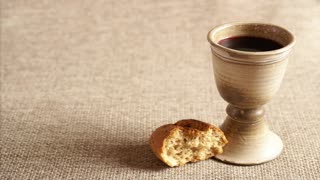 1:12:22
1:12:22
Wishram Community Church
7 months agoSunday Worship, November 5, 2023
71 -
 19:11
19:11
LCOOS
7 months agoSermon Only | Am I a saint? | November 1, 2023
11 -
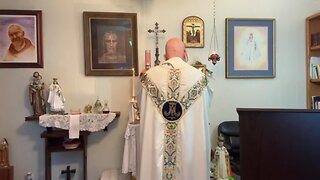 1:06:38
1:06:38
Catholic Media
1 year agoThursday Octave Easter, St Matin I, Eucharistic adoration - Catholic Mass - Apr. 13th
1811 -
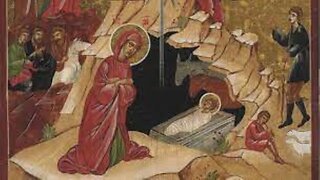 1:34:35
1:34:35
New Warrior Ministries
1 year ago2nd and 4th Sunday of Advent 2022 Feast of St. Nicholas on December 6
521 -
 39:32
39:32
decaturgrace
7 months agoWorship Through Giving - November 12, 2023
14 -
 56:37
56:37
Welcome!
7 months agoTraditional Service ✞ || How To Become a Saint 😇 || November 2023
22 -
 19:12
19:12
Cafeteria Catholics Come Home
2 years ago $0.02 earnedTODAY HOLY ROSARY: SUNDAY, DECEMBER 26, 2021 - THE HOLY ROSARY SUNDAY.
398 -
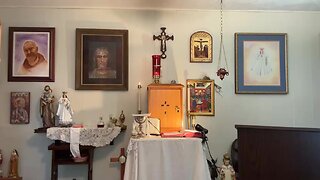 40:31
40:31
THE PROTEST PRIEST
1 year agoSt Norbert; Eucharistic adoration - Catholic Mass - Tue, June 6th 2023
339 -
 2:03:35
2:03:35
Catholic Media
1 year ago $0.03 earnedFriday Ember Day in Lent and Holy Hour - Traditional Latin Mass - Mar. 3rd, 2023
53 -
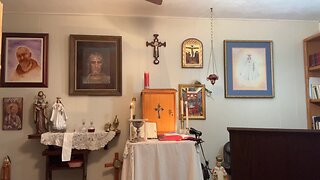 45:08
45:08
THE PROTEST PRIEST
1 year agoThursday of 2nd week Easter. Eucharistic adoration - Catholic Mass - Apr. 20, 2023
194